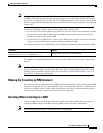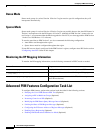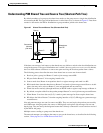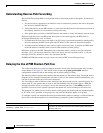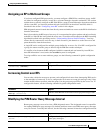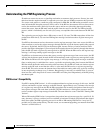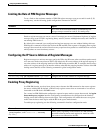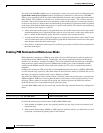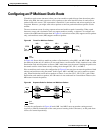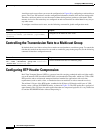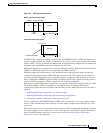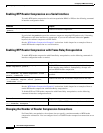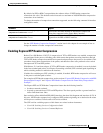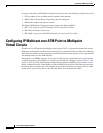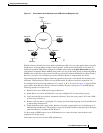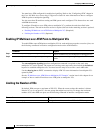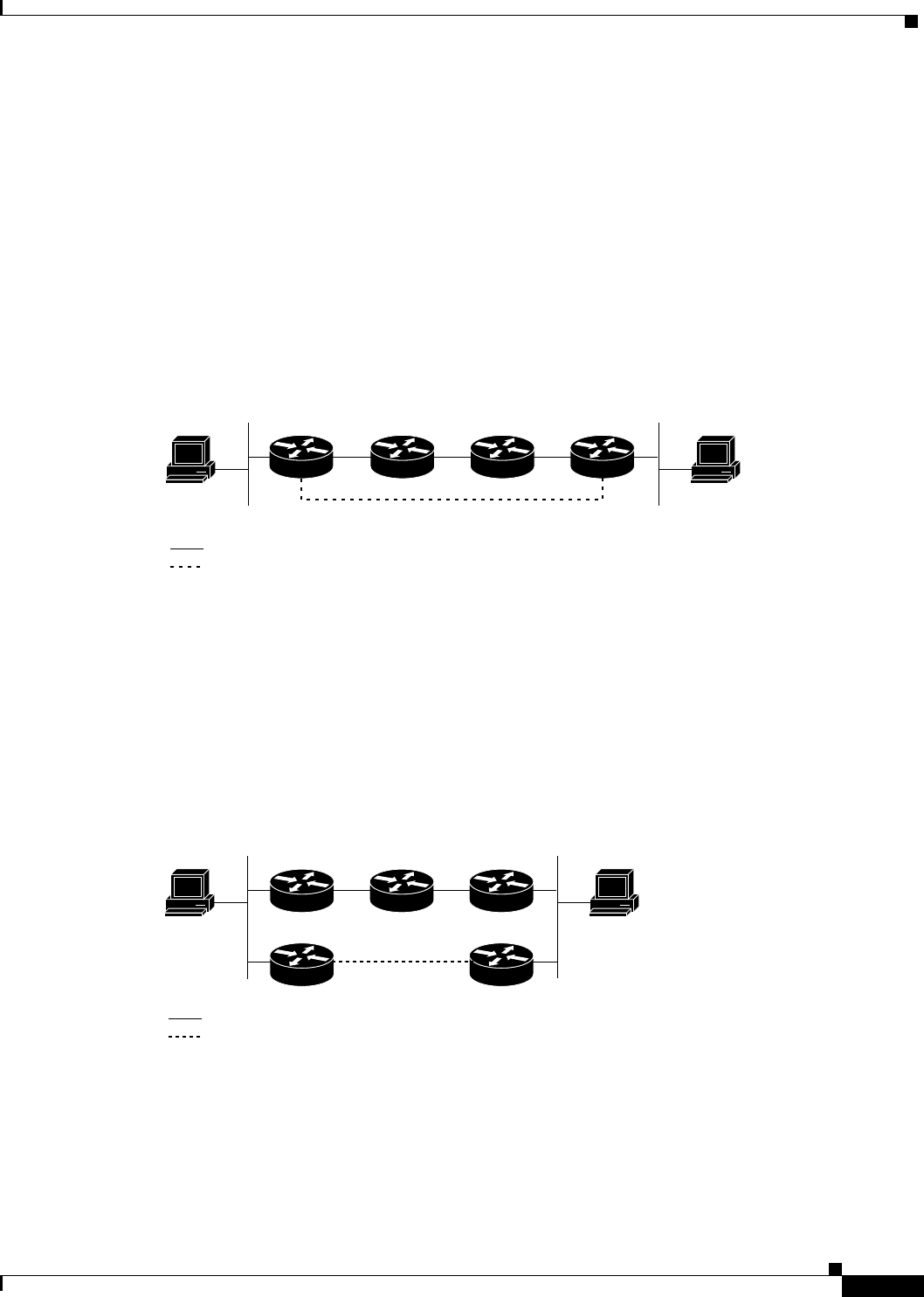
Configuring IP Multicast Routing
Configuring an IP Multicast Static Route
IPC-429
Cisco IOS IP Configuration Guide
Configuring an IP Multicast Static Route
IP multicast static routes (mroutes) allow you to have multicast paths diverge from the unicast paths.
When using PIM, the router expects to receive packets on the same interface where it sends unicast
packets back to the source. This expectation is beneficial if your multicast and unicast topologies are
congruent. However, you might want unicast packets to take one path and multicast packets to take
another.
The most common reason for using separate unicast and multicast paths is tunneling. When a path
between a source and a destination does not support multicast routing, a solution is to configure two
routers with a GRE tunnel between them. In Figure 68, each unicast router (UR) supports unicast packets
only; each multicast router (MR) supports multicast packets.
Figure 68 Tunnel for Multicast Packets
In Figure 68, Source delivers multicast packets to Destination by using MR 1 and MR 2. MR 2 accepts
the multicast packet only if it believes it can reach Source over the tunnel. If this situation is true, when
Destination sends unicast packets to Source, MR 2 sends them over the tunnel. Sending the packet over
the tunnel could be slower than natively sending the it through UR 2, UR 1, and MR 1.
Prior to multicast static routes, the configuration in Figure 69 was used to overcome the problem of both
unicasts and multicasts using the tunnel. In this figure, MR 1 and MR 2 are used as multicast routers
only. When Destination sends unicast packets to Source, it uses the (UR 3, UR 2, UR 1) path. When
Destination sends multicast packets, the UR routers do not understand or forward them. However, the
MR routers forward the packets.
Figure 69 Separate Paths for Unicast and Multicast Packets
To make the configuration in Figure 69 work, MR 1 and MR 2 must run another routing protocol
(typically a different instantiation of the same protocol running in the UR routers), so that paths from
sources are learned dynamically.
MR 1 UR 1 UR 2 MR 2
Source
Destination
Link
Tunnel
43278
MR 1
UR 1 UR 2 UR 3
Source Destination
Link
Tunnel
43279
MR 2



